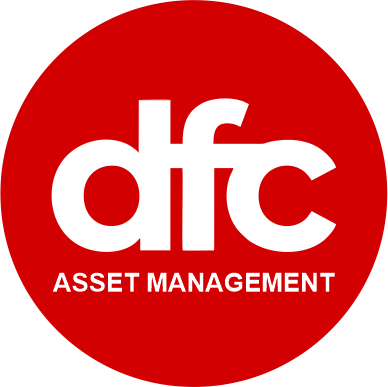Nigeria’s Credit Rating Upgrade: A Turning Point or Temporary Relief?
After years of economic headwinds, Nigeria may finally be on the cusp of a new era.
Last Friday, Moody’s Investors Service upgraded Nigeria’s long-term foreign currency credit rating from Caa1 to B3, citing notable improvements in fiscal policy, exchange rate management, and the withdrawal of long-standing fuel subsidies. The rating outlook was also revised to stable, suggesting that the risk of further downgrades has diminished for now.
In a global financial system where perception often drives capital flows, this move represents more than just a technical upgrade—it is a vote of confidence in Nigeria’s economic reform agenda, and a signal that the country’s painful adjustments may finally be yielding measurable progress.
Understanding the Upgrade: What Changed?
Moody’s rating actions are based on a combination of data, policy assessment, and forward-looking risk scenarios. For Nigeria, three key drivers stood out in their latest assessment:
1. Improved Fiscal Discipline
The Nigerian government has made visible efforts to reduce its fiscal deficit, particularly by eliminating fuel subsidies that consumed over ₦4 trillion annually. This has created space for the government to redirect spending toward infrastructure and social services.
2. Foreign Exchange Market Reforms
The Central Bank of Nigeria (CBN) has taken concrete steps to liberalize the FX regime by allowing market forces to play a greater role in determining the naira’s value. This move, while creating short-term volatility, is fostering a more transparent and investor-friendly currency environment.
3. Enhanced Revenue Mobilization Efforts
Ongoing tax reforms, customs modernization, and moves to expand the non-oil revenue base have helped stabilize public finances. While oil remains a critical revenue source, the government’s renewed focus on fiscal sustainability is gaining traction.
Why This Matters to Investors and Policymakers Alike
A sovereign credit rating upgrade is not merely academic—it has direct and significant implications for the country’s economic standing in the world. Here’s why it matters:
• Lower Borrowing Costs
A better rating reduces the risk premium that investors demand to lend to Nigeria, potentially lowering the cost of external financing and making debt servicing more manageable.
• Increased Investor Confidence
Credit ratings are often the first filter used by foreign institutional investors when considering exposure to emerging markets. An upgrade improves Nigeria’s visibility and credibility in global markets.
• Potential FX Stability
As confidence improves and capital inflows resume, the naira may benefit from a stabilizing effect, reducing the pressure on Nigeria’s reserves and exchange rate management.
• Positive Spillovers for Private Sector Financing
A sovereign upgrade can serve as a catalyst for improved credit conditions in the banking sector and for Nigerian corporates, many of whom rely on foreign capital to expand.
A Look at the Broader Economic Picture
Despite this milestone, it is critical to place the upgrade in context. Nigeria is still navigating a complex and challenging macroeconomic environment.
Key headwinds remain:
• Persistently High Inflation
Inflation remains elevated above 30%, driven by the pass-through effects of subsidy removal, currency devaluation, and supply-side constraints. This continues to squeeze household incomes and business margins.
• External Vulnerabilities
While foreign exchange reforms have improved transparency, FX liquidity remains a concern, and foreign reserves are still under pressure. Sustaining capital inflows will be essential.
• Structural Gaps
Power supply, logistics bottlenecks, insecurity, and infrastructure deficits continue to hamper productivity and competitiveness across sectors.
In short, while the direction of travel is encouraging, the journey toward macroeconomic stability is far from complete.
Implications for Investors: A Strategic Window of Opportunity
We believe the current macro environment—characterized by reform momentum, improving credit outlook, and attractive valuations—offers a unique entry point for investors with a medium to long-term perspective.
Some emerging themes and opportunities include:
1. Banking Sector Resilience
Banks have historically been early beneficiaries of monetary tightening and FX reforms. Higher interest rates improve margins, and stronger capital buffers position them well for credit expansion in a recovering economy.
2. Infrastructure and Energy Plays
The removal of subsidies and regulatory reforms in the power sector open up investment opportunities in transport, energy distribution, and gas-based industrialization. Infrastructure-focused businesses may see tailwinds as government spending is reallocated more efficiently.
3. Consumer Goods and Agriculture
As the economy stabilizes and inflation moderates, consumer purchasing power is expected to recover. Companies with strong brand equity, cost leadership, or import-substitution strategies may outperform.
4. Fixed Income Strategies
With yields at elevated levels and credit outlook improving, domestic fixed income assets—particularly longer-dated sovereign and quasi-sovereign bonds—offer compelling risk-adjusted returns.
What Should Investors Watch Going Forward?
While Moody’s upgrade is a green light, it is not a guarantee. Investors and analysts should monitor the following developments closely:
• Execution of Reforms: Strong policy signals must translate into consistent implementation.
• CBN Independence and Transparency: Market confidence in Nigeria’s monetary policy hinges on the CBN’s credibility and clarity.
• Debt Sustainability Metrics: With external debt rising, Nigeria must show that it can grow its economy faster than its debt burden.
• Inflation Trajectory: The pace at which inflation moderates will determine consumer confidence, real returns, and monetary policy direction.
Conclusion: Optimism Rooted in Reform
The Moody’s upgrade is a milestone, not a finish line. It confirms what many on the ground have begun to sense: the pain of the past 18 months may be giving way to progress.
For policymakers, it is an affirmation that hard choices are yielding dividends. For investors, it is a signal to reengage with Nigeria—not with blind enthusiasm, but with informed conviction.
At DFC Asset Management, we continue to analyze the landscape rigorously, seeking to unlock value in a market undergoing rapid change. We believe that disciplined, research-driven investment strategies can capture the upside of Nigeria’s reform story—while carefully managing the risks that still lie ahead.
The road to recovery is long, but for Nigeria—and those bold enough to invest wisely—the path may finally be clearing.
